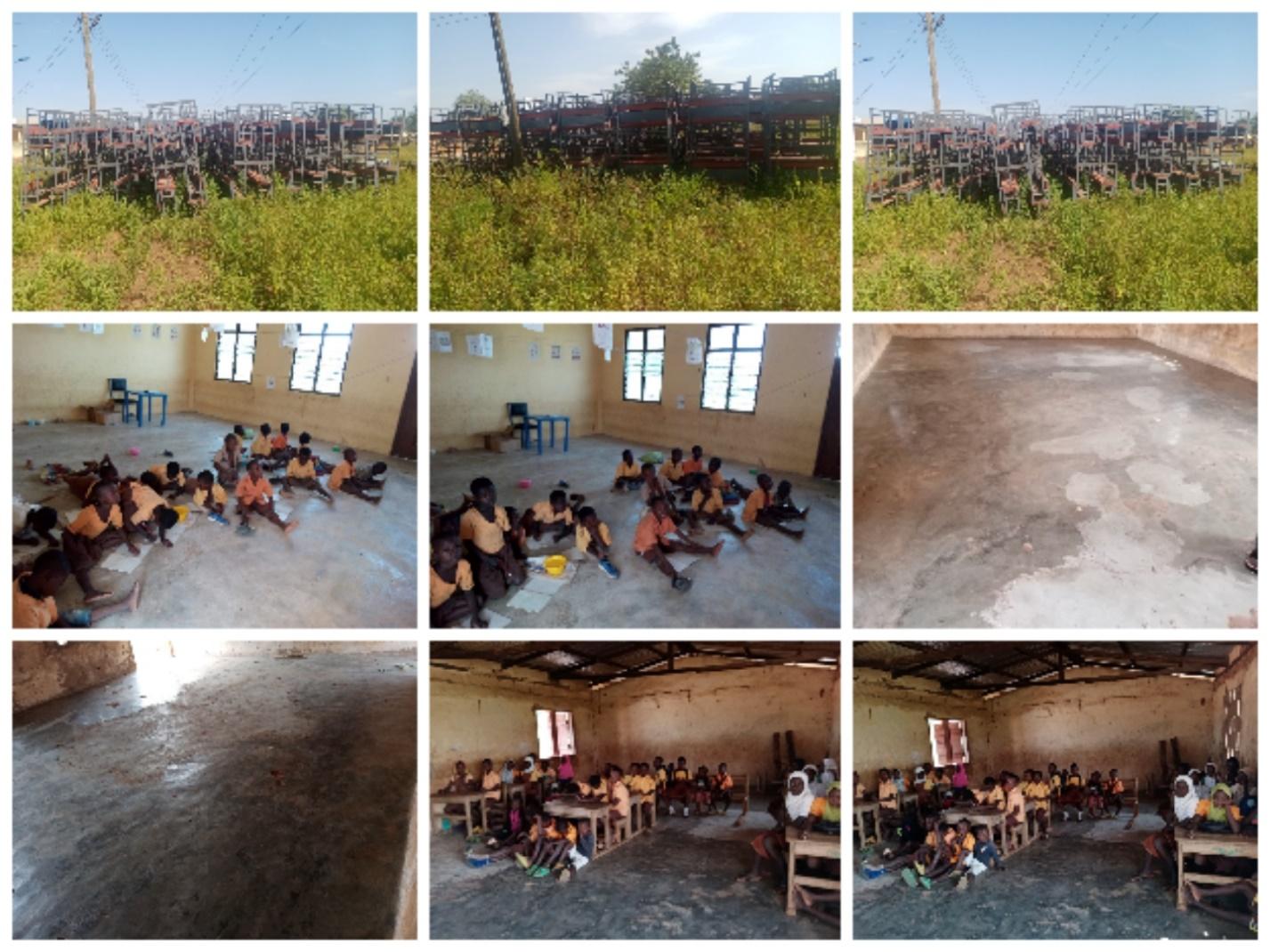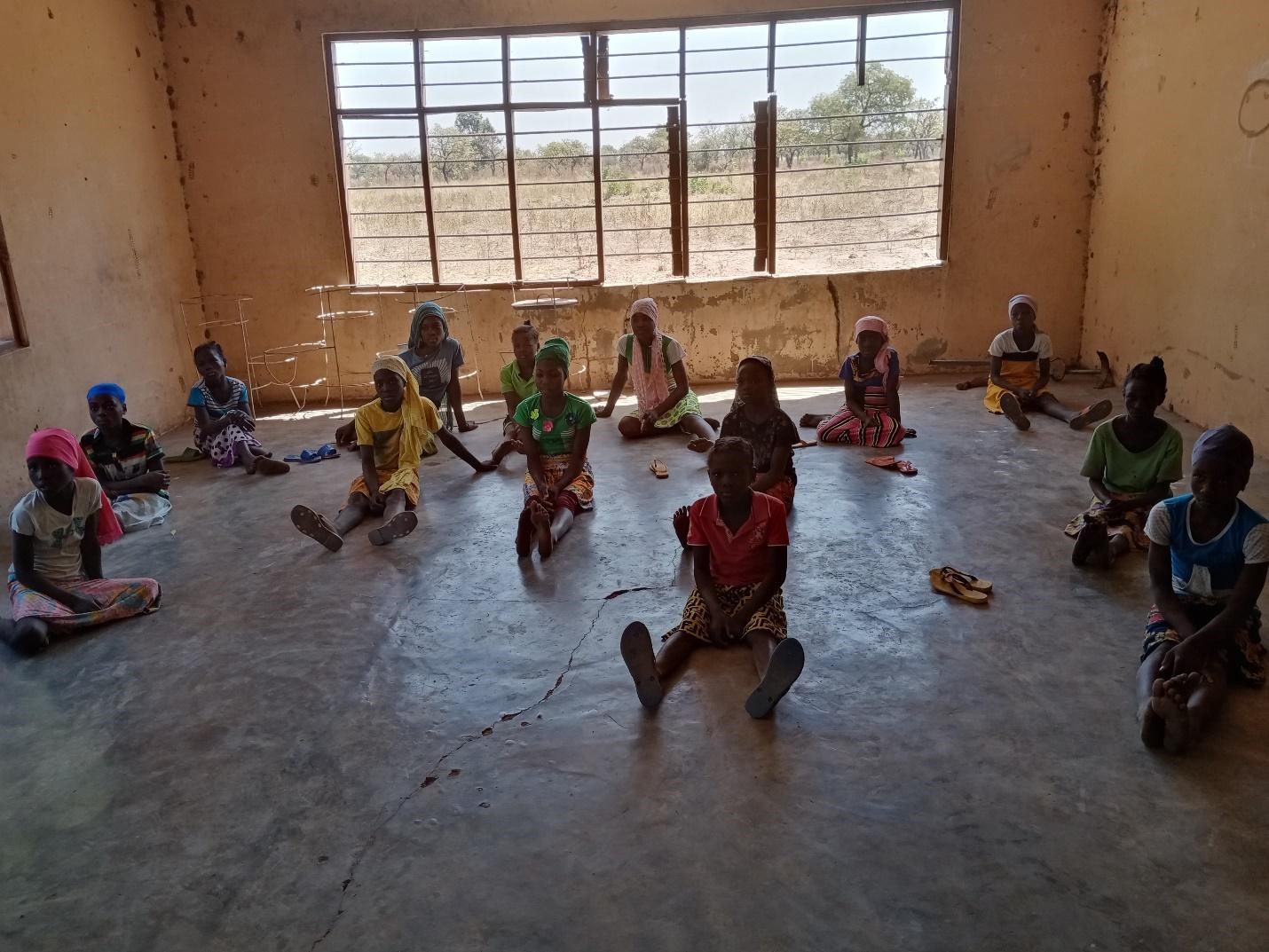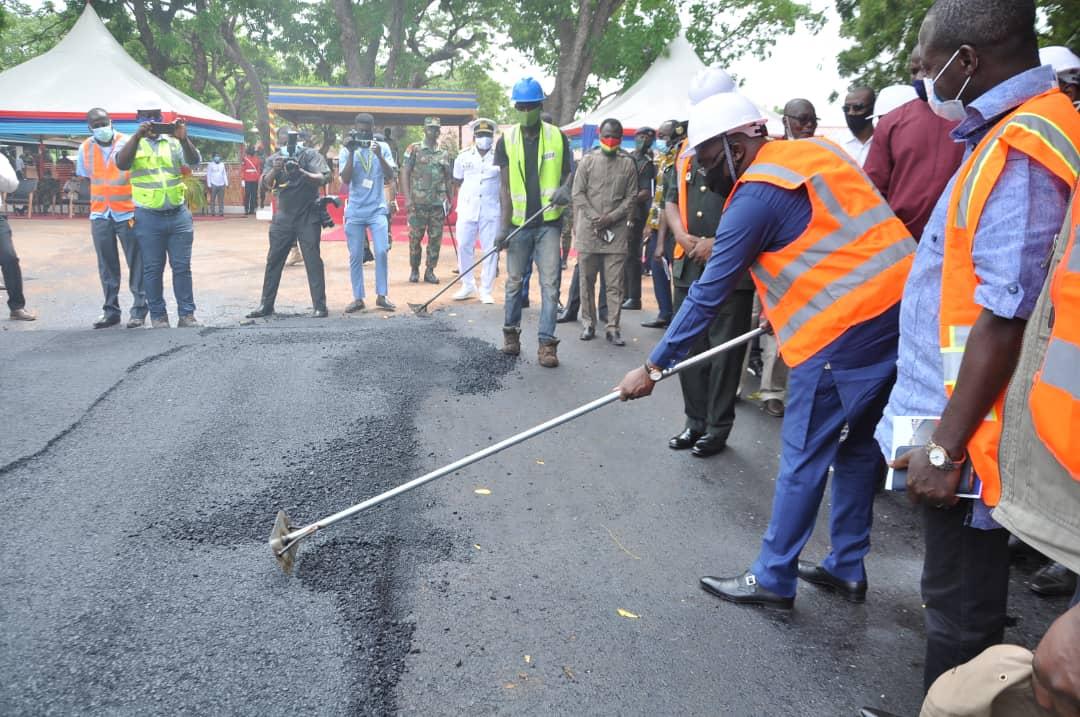![The furniture politics, my experience in educational sector in northern Ghana [Article]](https://citinewsroom.com/wp-content/uploads/2024/01/Op.jpg)
“I had to use one month to beg for forgiveness because I took the decision to cart and distribute furniture sent to the directorate three days to vacation because I was afraid failure to do so would mean leaving the furniture under the weather until schools reopen. The DCE argued that I should have waited for him to hand over furniture brought to me directly from Accra before carting them into the school”.
This revelation came from a District Director of Education in Tolon when the staff of the Foreign Commonwealth Development Office (FCDO) and Girls Education Challenge staff called on him.
They observed desks packed while their visit to schools revealed pupils lying on the floor like lizards due to the lack of furniture.
The Director pleaded that they should not confront the DCE because he would claim he reported him. The development partners were saddened that over two hundred pieces of furniture were exposed to the rain while students had no place to sit.
This is the case in all districts in Ghana and is worse in northern Ghana.
My work with the Ghana Education Service and the District Assemblies since 2014 indicates that the Assemblies have little regard for the educational sector. Talking to any staff at the Ghana Education Service would reveal a litany of frustrations.
What saddens me is the fact that these District Chief Executives are mostly less educated and have less experience than the Directors of Education and their staff. Unfortunately, we have allowed politics to destroy everything, from agriculture, to health, and education, among others.
The Ghana Complementary Basic Education over the years transitions students to formal school between the ages of 9 to 15 years after they have gone through a nine-month accelerated learning program. Most of these students receive bursaries, including school uniforms. Unfortunately, they have to sit on the floor with their new uniforms.
In 2016, while working for Plan International as a Regional Coordinator, a Head Teacher in one of the schools in the now Yunyoo/Nasuan district said girls drop out of school because they are uncomfortable sitting on the floor with their new uniforms. Imagine a girl of 15 years sitting on the floor full of dust. This issue has caused most girls to drop out of school.
According to GES, there are 65 schools, including basic and junior high schools within the district. Apart from the Yunyoo School, which has some furniture for students, not all the other schools have adequate furniture. It is therefore sad that the Assembly can let furniture supplied by the central government be overtaken by weeds, as seen in the picture below.
Early in July this year, I took pictures from the quarters of the Assembly where furniture had been left and met with the District Chief Executive. He claimed he was unaware of furniture left under the weather and called on his transport officer to ensure the furniture was sent to some schools. Three months later, a worse situation happened.
According to the staff of the Ghana Education Service, as well as that of the District Assembly, the Assembly is procuring 700 additional pieces of furniture and would like to distribute the 900 together. It is for this reason that the 200 paid for by GALLOPmoney is wasted in the bush. What logic is this? So if it takes a year to get the additional furniture, these will remain in the bush.
Why should furniture be sent to the District Chief Executive when we have a District Director of Education? Throughout the country, we have politicized furniture distribution. Pupils are punished for the ‘sins’ of their parents for not voting for a government. Furniture distributed by the District Assemblies is usually done without recourse to the education directorate. According to GES officials in northern Ghana, most schools where the government in power has won during previous elections would get furniture regardless of whether they need it or not.
There are schools in northern Ghana where pupils have to buy plastic chairs, as we have a Junior High School in Bawku West. There are schools where the Head Teachers and their staff have had to buy plastic chairs for themselves because there is no furniture, yet you will have DCEs making decisions like that of the Yunyoo/Nasua to keep furniture in the bush.
During one of the Parents Teachers Association meetings held in Bongo District, parents/caregivers and the teachers agreed that they would contribute to buying furniture for their wards. Immediately after the meeting ended, a parent told the Assembly member.
This Assembly member called the Head teacher claimed such a decision was going to make the government unpopular. If the government wants to be popular, why not supply all schools with furniture This killed the dream of parents since the Head Teacher was afraid of not making the government unpopular.
Last year, in the Upper West region, a Municipal District of Education, in a speech during a graduation ceremony held by one of our partners, enumerated the successes and challenges of the municipality and mentioned low furniture in schools as a challenge. Citi TV and citinewsroom.com reported the story.

The said Director reportedly received a call from the seat of government while the journalist was asked by the Municipal Chief Executive to write a rejoinder, which he refused. The Director has been transferred to a more deprived district.
How long can we continue to do politics with our education? Why is the current government refusing to take on board counsel from people on how to improve the educational system in the country? Is wisdom in the minds of people in government alone? No one person or a group of people are repositories of knowledge and ideas.
Girls transitioned to a school in the Tolon district of the Northern region with no single piece of furniture in the school.
Will these girls remain in school under these conditions? Will they be comfortable lying down in their classrooms? They will always be alert to trying to keep themselves unexposed.
This phenomenon is a worrying trend that needs to be curtailed; education is devoid of politics. Education is a basic fundamental human right, and Ghana, as a country bent on meeting Sustainable Development Goal Four (4) quality education, must put an end to these habits.”
Explore the world of impactful news with CitiNewsroom on WhatsApp!
Click on the link to join the Citi Newsroom channel for curated, meaningful stories tailored just for YOU: https://whatsapp.com/channel/0029VaCYzPRAYlUPudDDe53x
No spams, just the stories that truly matter! 
 #StayInformed #CitiNewsroom #CNRDigital
#StayInformed #CitiNewsroom #CNRDigital
The post The furniture politics, my experience in educational sector in northern Ghana [Article] appeared first on Citinewsroom - Comprehensive News in Ghana.
Read Full Story




















Facebook
Twitter
Pinterest
Instagram
Google+
YouTube
LinkedIn
RSS